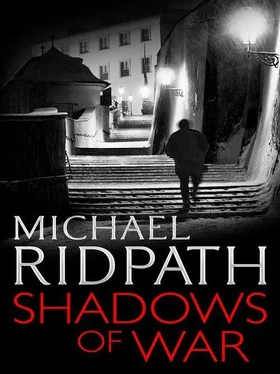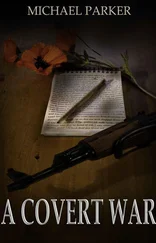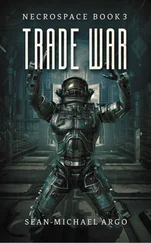Düsseldorf
The man whom Captain Payne Best knew as Captain Schämmel eased off his headphones and stared at the notepad on the desk in front of him. Venlo. 3 pm. 9 November.
He was in the small sitting room of a pension in Düsseldorf that had been turned into a communications room. Pride of place was given to the wireless transmitter which had been given to him by Payne Best and on which he had just confirmed the rendezvous. Accompanied by the general.
The British were pleased. He was pleased. He was getting somewhere.
He picked up one of the three telephones, the one with the direct line to Berlin. He was put through within a few seconds.
‘Heydrich.’
‘Herr Gruppenführer, this is Schellenberg.’
‘Ah, Walter. How did it go?’ The high-pitched voice of his superior immediately put Schämmel, whose real name and rank was SS Sturmbannführer Walter Schellenberg, on his guard, as it always did. You could never let your concentration slip for a moment in the presence of the head of the Gestapo.
‘I have set up a meeting in two days at Venlo. And I have just the man to play the part of the general.’
‘Do you think they suspect anything?’
‘No. And once I produce a general they will be happy.’
‘Good, good.’
Schellenberg, the head of the counter-intelligence section of the Gestapo, knew his chief. Heydrich’s tone suggested that something was not in fact good. Schellenberg waited.
‘I was speaking to the Führer about this,’ Heydrich went on.
Here we go, thought Schellenberg.
‘He is concerned about you flying to London.’
‘But if we are to get the British to tell us what they know about a plot to overthrow him, then we have to get them to believe we are real! They have insisted that the general comes to London, and if he goes, I have to go with him.’
‘I know that, Walter. But the Führer doesn’t like talking about plots to overthrow him, even fictional ones. He is going to Munich tomorrow, and he is back on the ninth. He will confirm you can go ahead then.’
‘Yes, Herr Gruppenführer!’ said Schellenberg and hung up.
The whole plan had been Heydrich’s idea, and now he was talking about pulling the plug on it at the very last minute, just as Schellenberg was getting somewhere.
But Schellenberg couldn’t worry about that; he had to assume that the rendezvous was going ahead. He needed to brief his ‘general’ and work on his strategy to negotiate with the British.
And in a couple of days, with any luck, he would discover who among the German generals really were plotting to overthrow the Führer.
The Hague
Conrad waited in his pokey room for ten minutes and then headed back outside. The Hollands Spoor station was just around the corner and there were frequent trains to Leiden. It only took twenty minutes.
Conrad had picked Leiden because of its proximity to The Hague and the famous university there. It was the sort of place where a doctoral student might meet an academic. Even when the doctoral student was actually a serving officer in the British Army? An intelligent German censor with time to check up on Conrad’s bona fides would never believe it. Conrad just had to hope that his telegram had been passed directly to the Abwehr and Theo.
It was a reasonable assumption.
Leiden reminded Conrad a little of Oxford. Lots of students acting as if they owned the place, lots of bicycles, lots of ancient buildings. But it was quieter, and prettier, and a network of canals threaded through the town. There was no war anywhere to be seen.
Despite the November breeze, it was a pleasant walk from the station to the city centre. The Hotel Levedag was on the Breestraat just past the town hall. Conrad decided to be himself as he approached the man behind the desk, whom he guessed was the hotel manager.
‘Good afternoon,’ he said in English. ‘Are there any messages for me? My name is Conrad de Lancey, and I was intending to stay at this hotel tonight, but I had to change my plans and stay in The Hague.’
‘Certainly, sir. Let me check,’ the manager replied in good English. He studied a bank of pigeonholes and then rummaged around in a drawer beneath his desk. He pouted and grimaced. ‘Nothing, sir, I am sorry.’
‘Ah.’ Conrad was disappointed, but he wasn’t giving up. ‘What about for Professor Madvig?’
‘Is he a guest at the hotel?’
‘I’m not sure,’ said Conrad. ‘I was supposed to meet him here.’
‘Are you expecting a message from the professor?’
‘Either from or to,’ said Conrad.
The manager looked at Conrad doubtfully, but then turned to have another look at the pigeonholes and a large ledger. ‘We have no record of Professor Madvig staying here or making a booking. Nor a message for him.’
Conrad smiled. ‘I understand. I’m afraid there has been a frightful mix-up. I’ll come back tomorrow. And if someone does leave a message, can you keep it for me?’
The hotel manager’s doubts were rising. Conrad had a feeling he wasn’t doing the secret-agent thing very well. Theo was the professional. It was too much for Conrad to expect his friend to get the message via Copenhagen to Berlin, and get to Leiden in a day.
‘Thank you,’ said Conrad and beat a retreat.
He stood in the Breestraat and wondered what to do. A blue tram rattled past. It was past two o’clock and he was hungry. He spotted a café-restaurant, and crossed the street to examine the menu in the window, dodging bicycles whizzing past.
‘Don’t look at me,’ said a voice in German next to him. A very familiar voice. ‘The Diefsteeg, back towards the station. Ten minutes.’
Conrad managed to suppress a smile, but showed no sign that he had heard anything. After a minute or so, he moved on to another café to inspect its menu. Then he strolled back along the Breestraat the way he had come.
The Diefsteeg turned out to be a quiet narrow lane, paved with red brick and squeezed between blind sides of houses on one side and courtyard walls on the other. Conrad walked slowly down the alley. He saw a tall familiar figure ahead, sauntering towards him. Before Conrad reached him, the figure ducked into a little café. Conrad examined the sparse menu in the window for a moment and then followed him in.
Theo was sitting at a table, back to the window, facing the door. He grinned when he saw Conrad. His dark hair had receded a little in the year since Conrad had last seen him, but the duelling scar along his jawline was still visible. And his smile was as charming as ever.
‘Professor Madvig, I presume,’ Theo said in English. ‘Or am I Professor Madvig?’
‘Sorry about that,’ said Conrad, taking a seat opposite him. ‘I think technically we are both supposed to be meeting Professor Madvig, whoever the hell he is. It was the best I could think of in the time.’
‘It worked,’ said Theo. ‘Fortunately I was in Holland anyway, so I could get here today. By the way, I think it’s better we speak English than German. Fewer Dutch people understand it, and it’s a little less suspicious.’
‘I’m glad you got the message. I was worried when you didn’t respond to the letter I sent you a few weeks ago. Did you receive it?’
‘I did get it,’ said Theo. ‘I thought about replying, but I didn’t know what to say. Because I didn’t know what to think.’
‘About the war?’ Conrad asked.
‘About the war. About you. About me.’
The barman approached, and they ordered pea soup and beer.
‘I know what I think,’ said Conrad. ‘Hitler must be stopped. That’s why I joined the army: to stop him.’
‘It’s easier for you than me,’ said Theo.
‘But you do still think Hitler must be stopped, don’t you?’ asked Conrad. It was an important question. If Theo had changed his mind about that, then Conrad should halt the conversation right there and then.
Читать дальше












